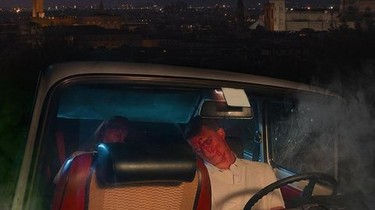Wake Up California: Don’t Let Italy Bury Two of Our Own
- Trevor Verbiest
- May 12, 2025
- 3 min read

In the summer of 2019, two California teenagers landed in the middle of a foreign justice system—and may never fully escape it. Finnegan Elder and Gabriel Natale-Hjorth, both from the Bay Area, were arrested in Rome after a chaotic street altercation that ended in the fatal stabbing of Italian Carabinieri officer Mario Cerciello Rega.
One is now in prison, the other under house arrest. And California has gone quiet.
Elder admitted to the stabbing but claimed it was self-defense. He believed he was being attacked in the dark by armed strangers. Natale-Hjorth didn’t touch the knife. He was barely present when the stabbing occurred. But both were convicted of murder—Elder receiving a 15-year sentence and Natale-Hjorth 11 years after appeal.
California needs to wake up. One of our own remains in an Italian prison, serving a sentence that never fit the crime, while the other is under house arrest, unable to return home.
Let’s be clear: this is not about excusing a man’s death. Officer Rega’s killing was tragic. However, the trial that followed was less about truth and more about spectacle. The Italian media labeled the boys “violent American thugs.” Photos of them blindfolded in custody were leaked to the press. There was no presumption of innocence.
According to The Guardian, during the trial, critical questions were ignored. A surveillance video that could have shown the altercation was ruled irrelevant by the court. Key evidence vanished. Natale-Hjorth was treated not as a teenager caught in the wrong place at the wrong time—but as a symbol. And Italy, grieving a beloved officer, wanted justice that looked harsh, not necessarily just.
The BBC reported that prosecutors leaned heavily on text messages and photos from the teens’ phones to paint them as reckless drug-seekers. One particular exchange, taken from the Carabinieri’s investigative file, shows Elder describing the failed drug deal that quickly spiraled.
“We were trying to buy coke from these sketchy guys,” he wrote to his girlfriend. “They take Gabe a block away and hella n***** pull up and take his money.”
This language is offensive and ugly. It’s also telling. These were two teenagers, intoxicated and scared, describing events that were spiraling out of their control. What those messages reveal isn’t a calculated plan to kill, but confusion, fear, and immaturity. They were in over their heads. And in the Italian courtroom, none of that mattered.
The court leaned on those texts and photos, not as context, but as character assassination. Every misstep, every party photo, every dumb teenage comment was used as evidence of intent. Never mind the chaos of that night, or the fear of being jumped in a foreign city. Never mind that Elder had no idea the man he stabbed was a police officer. Never mind that Natale-Hjorth didn’t even witness the stabbing. The message was clear: we’re making an example of you. And that example required the harshest possible penalty—no nuance, no mercy, no real effort to understand what happened.
Meanwhile, the American response? Silence.
When basketball star Brittney Griner was detained in Russia, there was an outpouring of support. Media coverage. Government intervention. Celebrity campaigns. Why not for Elder and Natale-Hjorth? Is it because they’re not famous? Is it because the case is messy and complicated? Is it because their story doesn’t fit neatly into a narrative?
But that’s exactly why it matters.
Justice should apply even when it’s inconvenient. Even when it’s not easy to defend. Even when the defendants are imperfect.
These two young men did something reckless. But the punishment has far outweighed the crime. And the state they call home has done almost nothing to fight for them.
California can’t undo what happened in Rome. But it can demand accountability. It can speak up. It can ask why two American teenagers, judged under a system that values symbolism over substance, were handed their futures in handcuffs.
It’s not about denying the pain of a man’s death. It’s about asking if justice, in this case, was ever really served.
Finnegan Elder is still in prison. Gabriel Natale-Hjorth is still on house arrest. Their names have all but vanished from headlines. But their lives are on hold, shaped by a moment that spun out of control—and a system that never gave them a fair shot.
We can’t keep ignoring them. The silence, at this point, is complicity.
California must stand up for its own—before it’s too late to make it right.


